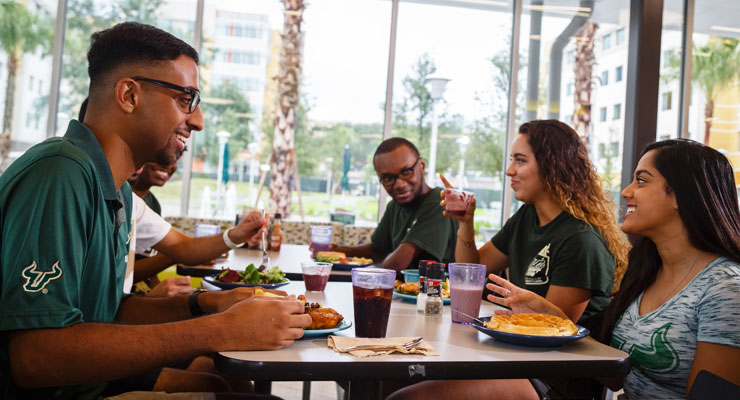Tips for Parents on Teaching College-Bound Students How to Be Independent
By Joe Emerson | Last Updated: Mar 5, 2025

It’s a safe bet that someone somewhere is writing a doctoral thesis or medical journal article on why there are so many labels these days for overprotective parents: helicopter parents, bulldozer parents, snowplow parents, to name a few. Here’s one likely takeaway from that article: Tips for parents on teaching college-bound students how to be independent should be informed by a vaccine analogy. A shot of responsibility now can give your student enough confidence to survive the independence of freshman year.
Begin by Giving Them the Reins Now (While They’re on a Relatively Safe Horse)
Psychology Today notes that for most college freshmen, firsts are the heart of the college transition challenge. That’s because for most of them, as the article explains, freshman year will be their first time:
- Living away from home
- Creating and living under a budget
- Setting and being responsible for their schedule
- Choosing and being responsible for meeting academic goals
- Living alone in an unfamiliar community
- Living without parental supervision
There are two excellent reasons to have your student take the lead in the final phase of college preparations. It will help inoculate her against freshman year firsts, and it will lighten your load by shrinking your to-do list. It also will make both of you more confident that she will be able to handle college.
Here are some tips on making the run-up to college more productive and the looming challenges less foreboding.
Make Sure Your Student Is Ready for the Academic Challenge
Academically, is your high school graduate ready for college? Revisit her standardized test results. Are there warning signs that college-level courses could prove too challenging?
There are objective metrics for gauging the readiness of your student. Better yet, she knows what subjects have been problematic and still could be. Get any concerns out in the open, talk them through, and act. Options include:
- Summer programs such as those offered by USF
- Tutoring
- Reading, from plowing through college reading lists to exploring assigned textbooks
- Community college summer classes
Consider Summer Activities That Can Boost Confidence, Independence
Pre-college programs aren’t the only way your student can get a taste of what’s coming while boosting confidence and readiness:
- Summer jobs or internships, particularly those related to career interests or likely academic pursuits, can simultaneously bolster a student’s knowledge base, bank account, and confidence.
- Summer camp can help your student acclimate to being away from home, and options include academic and career-oriented choices.
- Traveling abroad for volunteer or academic reasons, or purely for adventure, can expand horizons, raise confidence levels, and enhance academic readiness.
School Them on Skills They’ll Need in College
Has your student been part of the financial planning for college? If not, it’s time to get her involved. Helping her understand the finances will show her that there’s more invested in the process than time. Getting her vested in the process also will expose her to tools she must master for life in college and afterward.
If your student doesn’t have a bank account or credit card, consider getting both. She’ll be her own money manager once school starts, and now is the time to learn how.
She also needs to learn the value and process of budgeting. There are plenty of online tutorials on budgeting, but nothing will beat sitting down with you and the financial plan for her college education.
The life skills she’ll need in college won’t be limited to finances. Make sure she knows the basics of:
- Keeping house, from how to clean a living space to how to wash clothes
- Cooking and shopping, from groceries to basic household goods
- Maintaining a car, from mechanical care to insurance and basic paperwork
- Medical and dental care, from where to go to when
- Time management skills
Make Sure They Know What to Expect
There is no way to prepare your student for every possible college scenario, but setting aside time to discuss potential issues is one way to give them an edge. Finding time every day for conversations would be ideal, and pointing them in the direction of good information can fill in the gaps.
Here are some articles that might help get discussions rolling and questions answered:
- The 5 Biggest Differences Between High School and College Life
- What to Expect When You Start College
- What It’s Like to Live with a Roommate in College
- What I Learned My First Year at College
- Successfully Transition to College Life with These Tips
Make Sure They Know That Most Colleges Have Great Support Systems
Colleges are designed to educate. They know that the best way to do that is to provide a safe and appealing learning environment, a home designed to meet the educational, social, safety, and health care needs of every person on campus.
For your student’s peace of mind and yours, find out how the college your child will call home can meet her needs, from libraries and recreation centers to medical clinics and study centers.
Resources found at USF are a good example of what a supportive school has to offer.
Make Sure They Know How to Build a Social Safety Net
The support system college students rely on isn’t solely a product of services. It’s also about people. Connecting with people is a huge part of building a degree of immunity to the stress, loneliness, and homesickness that often plague freshmen.
The apprehension that puts a knot in the bellies of many soon-to-be college freshmen typically is equal parts fear of being unable to make the grade and not being able to fit in socially. Here are a couple of articles that might help:
- How Academic Success Centers Can Help You Make the Grade in College
- 5 Tips to Meet New People at College
- How to Get Involved on a College Campus
Hey, Mom and Dad, Make Sure You’re Ready, Too
Before helicopter parenting was a thing, pediatrician Benjamin Spock promoted the tenets of what became known as “free-range parenting.” It’s based on the theory that children need freedom to experiment and even, yes, fail.
If you taught your child to ride a bicycle, you know the feeling of running alongside and finally letting go of the bicycle. You felt each wobble of that bicycle as it left you behind, and you tried to harden yourself to the knowledge that sooner or later there would be a crash and Band-Aids – maybe even stitches.
Regardless of your position on the parenting theory spectrum, letting go was hard. It’s still hard, but it might help to read these five things college students want their parents to know.
If you want to know more about the ways a good college tries to ensure the well-being of students, the USF Office of Admissions is ready to engage. Contact us online, or reach us by phone at 813-974-3350.





